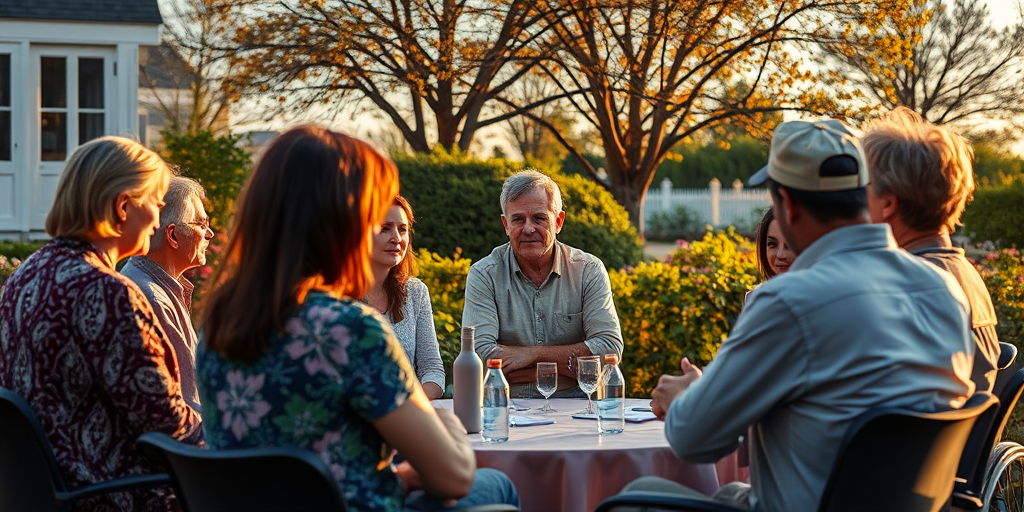Unseen Struggles: Living with Long-Term Disabilities in Mashpee
In a compelling and heartfelt exposition, Lynne Barbee, chairwoman of the Mashpee Human Services Committee, brings to light the myriad challenges faced by individuals with disabilities—particularly those not immediately visible to the naked eye. Her insights, shared in an article for the Mashpee Inclusion & Diversity Committee, resonate profoundly within the local community and beyond, urging a deeper understanding and more compassionate societal response.
Understanding Unseen Disabilities
Barbee, who herself lives with a long-term disability, provides a candid view of the everyday trials that people with non-visible disabilities endure. Her personal account of facing judgment when using designated “handicap” parking spaces reveals a broader societal tendency to overlook disabilities unless they manifest physically. “How easily we judge people by just a quick look,” she remarks, highlighting the critical need for awareness of diverse disabilities that extend beyond physical impairments.
Her story underscores the importance of the Americans with Disabilities Act (ADA) of 1990, a significant legislative milestone intended to protect the rights of the disabled community. However, Barbee stresses ongoing challenges in enforcing ADA compliance, pointing out the persistent hurdles due to inadequate education and misconceptions about disabilities.
The Scope and Impact of the ADA
The ADA’s broader definition of disability, as referenced by its official website, encompasses conditions such as PTSD, HIV, autism, and others. This inclusivity emphasizes the diverse nature of disabilities, both seen and unseen, thereby advocating for a comprehensive understanding and support across all sectors.
Despite this legislative support, Barbee notes that individuals still encounter reluctance from some employers or organizations in providing reasonable accommodations, often citing cost and inconvenience as major deterrents. This reluctance, coupled with a lack of awareness, underscores the persistent need for societal shifts in attitude. As Barbee aptly puts it, “We must educate ourselves about disability rights and advocate for accessibility without pre-judging those who may appear unimpaired.”
Local Impacts and Community Responses
The issues highlighted by Barbee hold significant implications for the community of Mashpee and the broader United States, touching the lives of countless individuals with disabilities. Her call for increased awareness and better accommodations could herald a new era of inclusivity and understanding in Mashpee, fostering a more resilient, supportive community.
Mashpee resident and disability rights advocate, Karen Lewis, echoes Barbee’s sentiments, expressing a desire for more community-driven initiatives. “Mashpee can become a beacon of hope and progress by integrating accessibility at every level,” Lewis states, urging local authorities to consider disability-friendly policies actively.
The Mashpee Inclusion & Diversity Committee’s monthly meetings aim to cultivate a community that values diversity and inclusivity, offering a platform for residents to discuss and address these vital issues. Such initiatives not only foster awareness but also encourage practical steps toward eliminating barriers faced by those living with disabilities.
A Historical and Ongoing Struggle
Barbee’s reflections connect to a longstanding struggle within the disability rights movement, where enforcement of the ADA has been a continuous challenge. References to past events, like the 2001 policies study on nonprofit and social justice organizations, illustrate a persistent issue of misunderstanding and insufficient action toward necessary accommodations.
For Mashpee and similar communities nationwide, Barbee’s article serves as a clarion call to action, urging local stakeholders to implement meaningful changes. This step can set a precedent for other towns, promoting a ripple effect of progress in disability rights enforcement and societal acceptance.
Future Directions
Looking ahead, implementing the insights shared by Barbee could have substantial positive ramifications for Mashpee, supporting broader acceptance and accommodation for residents with disabilities. By embracing a collaborative approach and prioritizing education on disability rights, the community can lead the way toward a more inclusive future.
Local leaders, educators, and business owners have the potential to shape a more understanding and accessible community. As Valerie Jackson, a local educator emphasizes, “Our schools and public spaces should reflect the diversity of the people they serve, ensuring every individual feels seen, respected, and supported.”
Resources and Support
Residents interested in engaging with these initiatives or learning more about disability rights are encouraged to participate in the Mashpee Inclusion & Diversity Committee meetings, held every third Tuesday of the month from 5 to 6 PM. For further inquiries, community members can contact the committee at mashpeeidc@gmail.com.
Through her compelling narrative, Lynne Barbee opens the door for transformative change, urging individuals and institutions alike to become allies in the quest for a just and inclusive society. As Mashpee and its residents embrace this challenge, they lay the groundwork for an equitable future, enriched by diversity and empowered by understanding.
For more information and ongoing updates on this topic, community members and interested parties are invited to follow Woke News for more stories on local impact, community interest, and resident experiences related to disability rights and advocacy.







